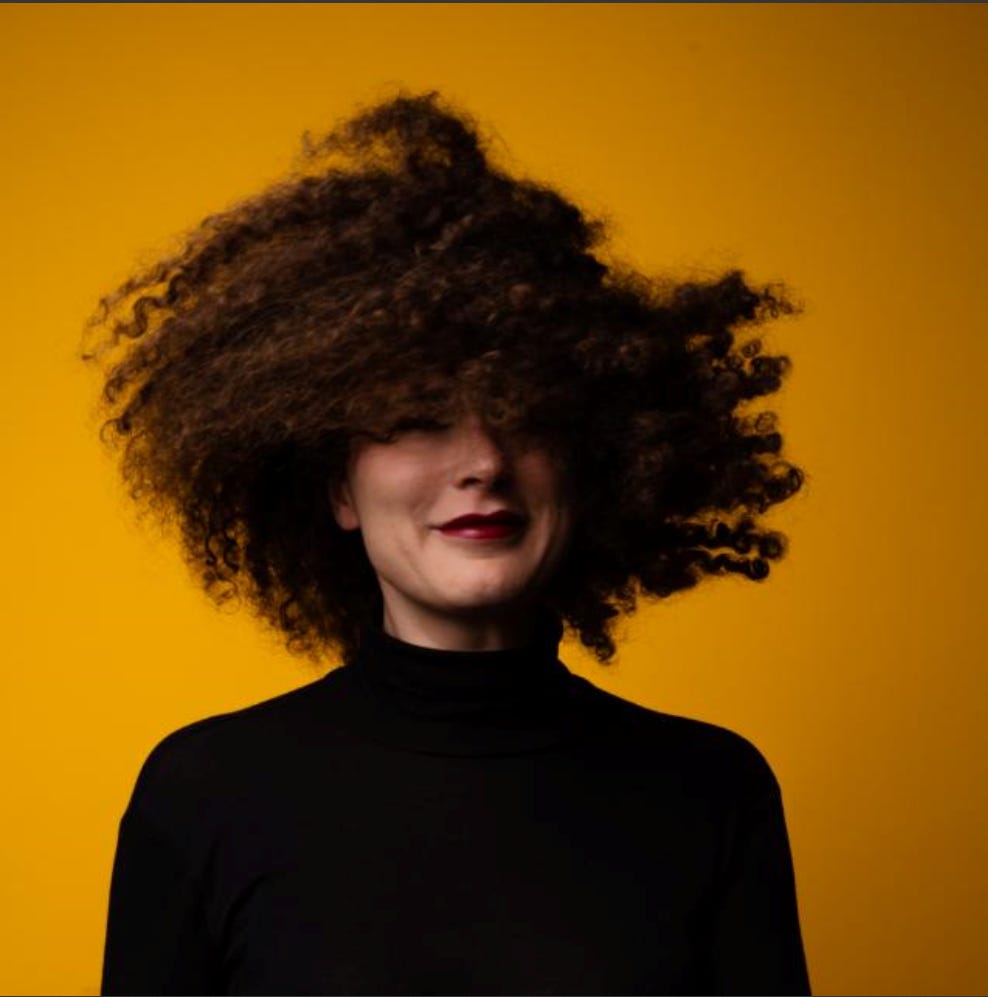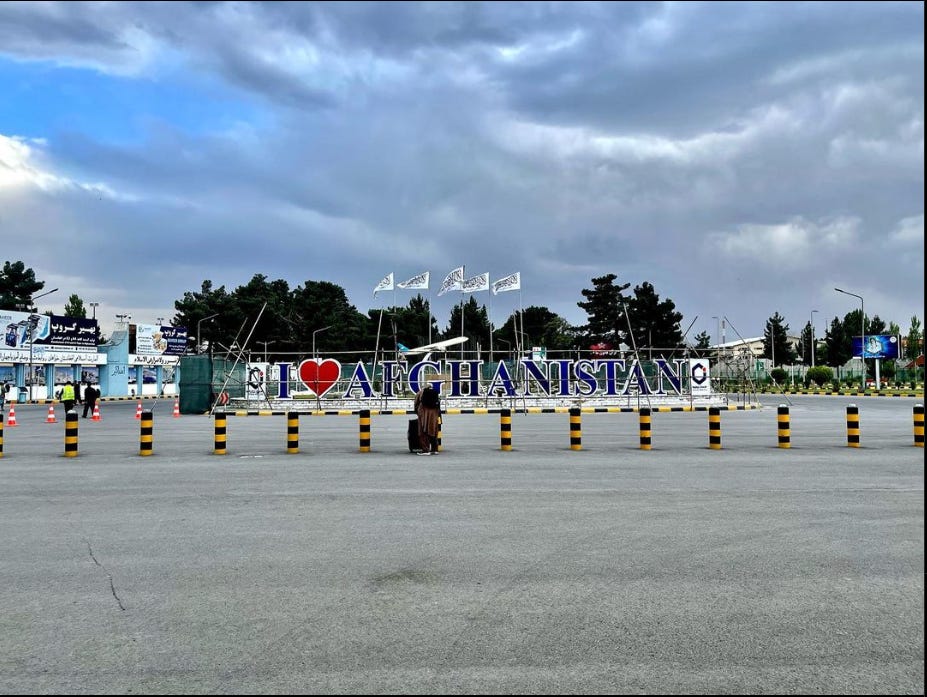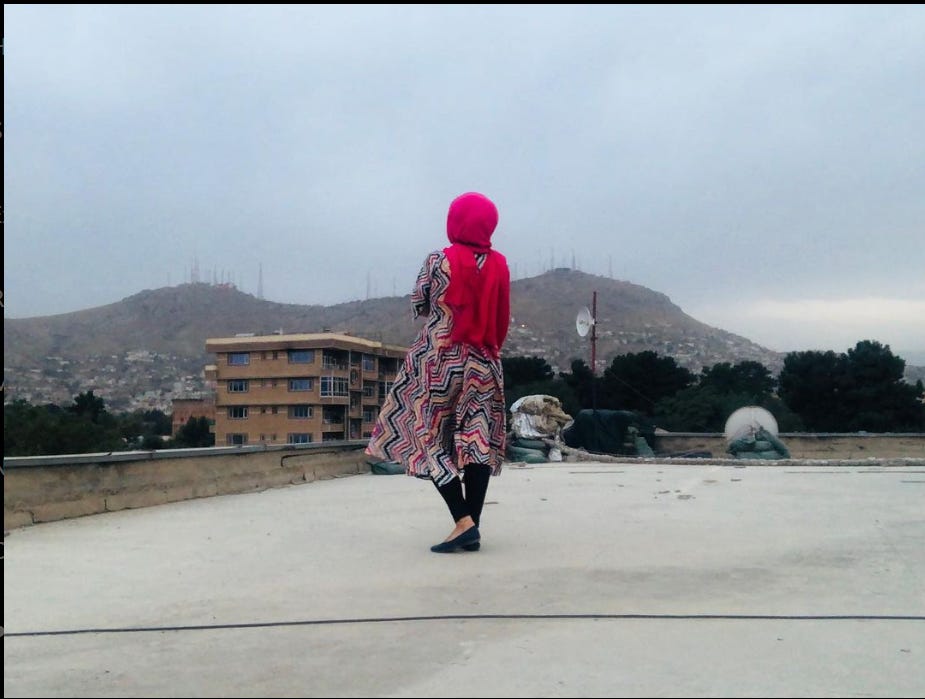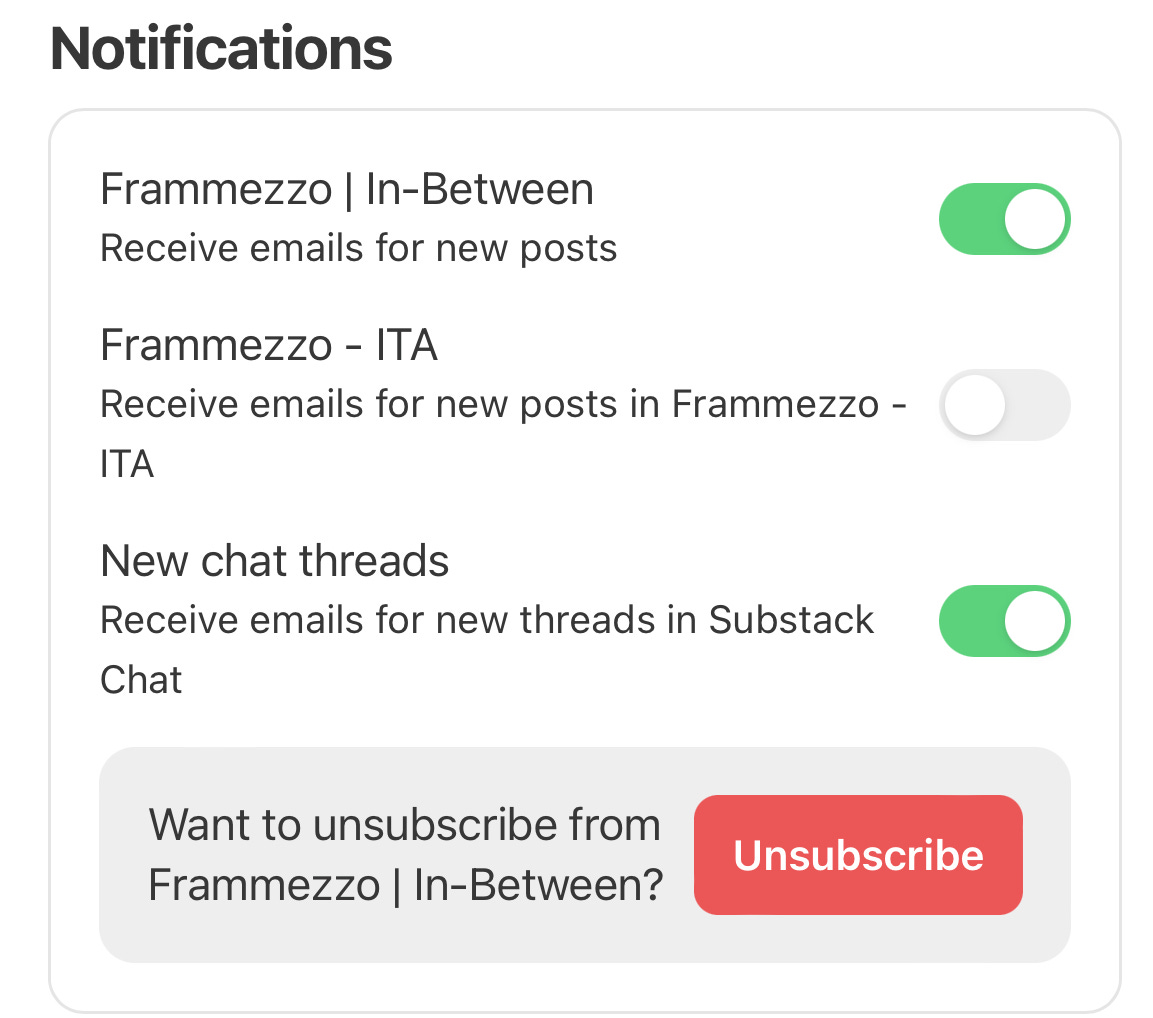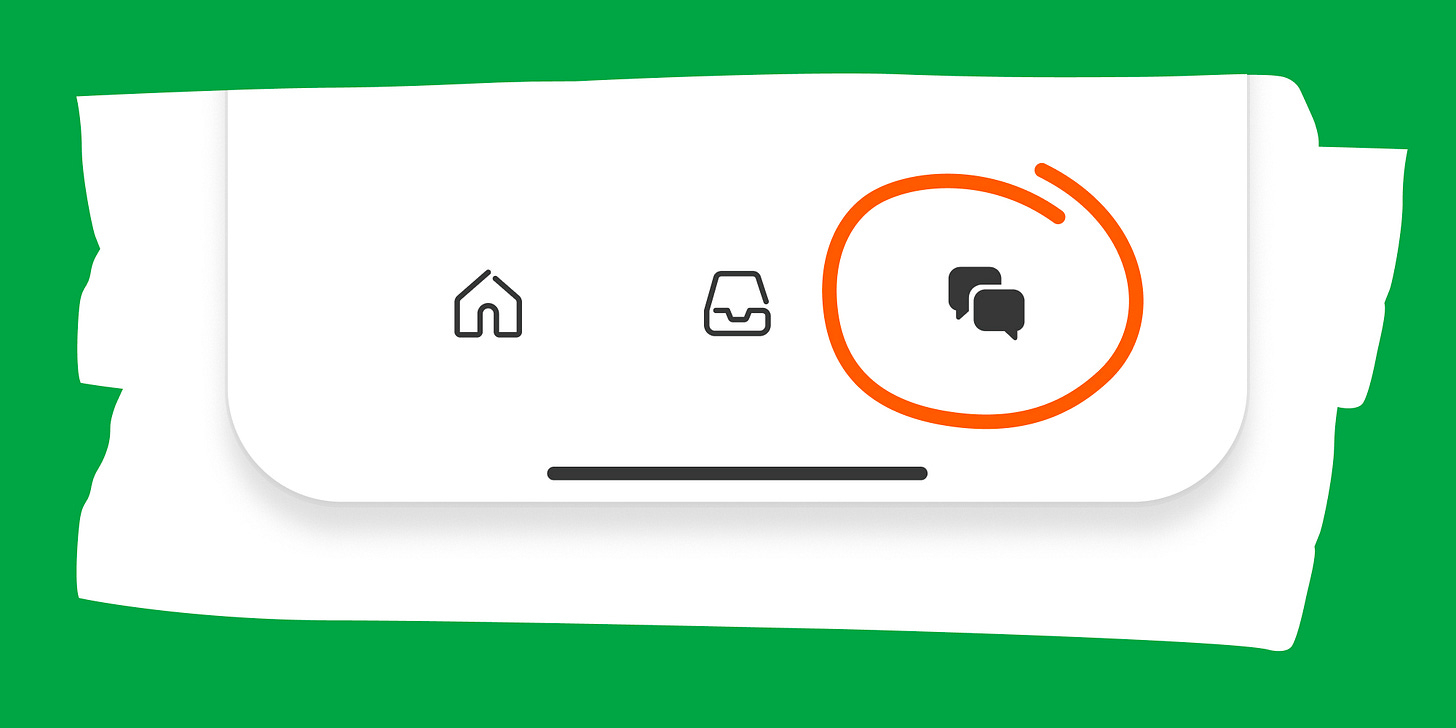Interview with Beba, safety analyst of the Israeli-Palestinian conflict
Life in the Frammezzo #3 - Beatrice Barco
To read this post in Italian click here.
Today's interview is with Beatrice Barco, armed conflict analyst and safety advisor, now Head of Mission at the International NGO Safety Organization (INSO), covering the Israeli-Palestinian area.
I met Beba, as she prefers to be called, while we were both studying Publishing at Oxford Brookes University. After our master's degrees, we took different paths: I stayed in the UK, whilst she moved to Switzerland, then Lebanon, Afghanistan, and now Jordan.
Beba is multilingual, multifaceted, and accomplished. I usually describe her as someone with a great zest for life. We've kept in touch over the years and even met by chance one night in Bangkok: I like to think fate brought her a familiar face from the other side of the world to hear her story and offer a hug.
During a personal difficult time, Beba recommended a psychotherapist who helped me focus my energy and rethink all my organizational principles. This newsletter is a gift from my therapy journey and, therefore, also from Beba.
Make yourself comfortable; her story will captivate and transport you somewhere else.
Beba, what shape does your In-Between take?
If I had to imagine my Frammezzo, it would be like a boat setting sail without a known destination.
For several years now, I've been analysing active armed conflicts, which means being right in the thick of things. My path led me here, where I work as an armed conflict analyst for INSO.
I alternate between months on missions and time at home, in Italy. Currently, I'm based in Amman, setting up the INSO office in the Gaza Strip. Once it opens, I'll travel frequently between the West Bank and Jordan.
Before this, I spent seven years living between Afghanistan and my home in Veneto. I love Kabul and I left a part of myself there.
What led you to live in the In-Between?
I think the main drivers for those who decide to work in the humanitarian sector and, consequently, to live in the Frammezzo, are three: a strong sense of humanity and a desire to help others; anger and love, which I see as two sides of the same coin; and finally, despair and boredom. I belong to this last group. I've always been curious and easily bored, wondering what it would be like to live in different places and speak different languages.
Volunteering has always been a part of my identity as well. I have always been motivated by an altruistic desire to do meaningful work that benefits others and improves society.
Beba
Practically speaking, how does your life in the In-Between work? The obvious questions that come to mind hearing your story are: where do you live? Where do you sleep? Do you have a fixed setup, or does it vary based on circumstances?
In general, people with jobs like mine spend about eight weeks on missions, alternating with a couple of weeks (or more, if needed) outside the local country. In my case, during these breaks, I usually return to Venice, where I rent an apartment. The idea is to detach the employee from the dynamics of the armed conflict, to ensure mental and physical space and wellbeing.
Practically speaking, when on-site, sometimes we live in guest houses provided by employers. During my last period in Afghanistan, for example, I lived and worked in the same building, with the office downstairs and the apartment upstairs. For me, those were the hardest years.
Before the Taliban took power in the country, I could rent a house independently, which was then no longer possible due to security. Not having a physical separation between where I lived and where I worked slowly led me to burnout, and, to recover, I had to leave Kabul.
Now I live in Amman, Jordan, and I have a home to call my own again. INSO provides me with a housing allowance to help with rent.
When I return to Venice, I still have my apartment; however, at the moment, it's rented out to an Afghan girl whom I am supporting through crowdfunding to help pay for her university studies in Italy.
Click here to support Zuhra’s right to education.
What’s your typical week like?
When I'm on-site, I wake up early, around 5:30 AM, carving some time to take in all the humanity that surrounds me. With my phone still off, I grab a coffee on the sofa or the terrace. After about an hour, I take a shower and then start checking and writing the most important emails of the day.
Around 7 or 7:30 I head to the office and, in Amman, I have the luxury of doing so by walking. It was a joy to return to these 'normal' life moments after spending the last few years in Afghanistan, where my freedoms were severely restricted.
After work, I either practice yoga or join calisthenics classes, which are exercises focused on balance and muscle strengthening. Essentially, I take part in activities that help me unwind from work stress. I've also formed a great group of friends to enjoy dinners with and spend time with on weekends.
On the other hand, when I'm in Venice, it's all about baccalà mantecato, prosecco, hills in Cadore or going to the Lido. I've had the same group of friends since childhood. They are my reality check, showing me what life is like for someone fully integrated into the same society from birth to death.
I see them taking their mom to the doctor, paying the car insurance, and going to the post office. It's comforting, even though this dynamic highlights that, in my life, I lack some of the things most people take for granted.
Can you highlight any specific benefit that living in the In-Between has brought to your life?
I can certainly understand the Other more deeply, not just in terms of the civilian population but also regarding armed groups. The Taliban will never be our allies, and indeed, they believe women should be invisible and mute. However, I have communicated with them; I have negotiated with them while sitting at the same table, compelled to avoid their gaze, and they mine.
I've engaged with them both when they were armed resistance and when they were in power. Although I can never bring myself to like them, I have come to understand the reasons behind their actions.
Western countries, particularly the United States, invaded Afghanistan, spreading values that conflicted with the structure of Afghan society. Imagine if a nation invaded Italy, causing destruction and imposing values that are opposite to ours. For Afghanistan, the invader has always been the West, time and again over the years.
Wouldn't you have fought back if you were in their situation?
My grandmother defended her land against Fascism; isn't that the same?
My Frammezzo gives me the chance to understand the Other and what Resistance means, and for that, I am grateful.
Afghanistan
In building this lifestyle, have you had to deal with any prejudice? Has anyone not understood your life choices?
As a white woman—even though I struggle to define myself as white because, you know, we Italians are a bit mixed race—the first prejudice I face is at work. Having lived in countries with a very traditional gender structure, I'm often considered by default… how to put it… let's say ‘a woman of easy virtue’.
What’s interesting is that this perception comes from both the local population and international colleagues. What can I say, the humanitarian sector sometimes can be quite… indulgent.
More generally, people struggle to understand what I do. From family, friends, and even my partners, I often don't find the understanding I need—not due to a lack of love, but because I experience things so far removed from 'normality' that they're hard to comprehend for those not in it.
Do you think building a tailor-made life and being able to follow personal inclinations is the exclusive prerogative of those born within a certain economic privilege? It’s not easy for everyone to imagine your lifestyle.
The first privilege we encounter is that of a passport. I can enter the West Bank because I'm Italian. To live in a Frammezzo like mine, you need a privileged passport. Try sending a Pakistani to Colombia with a work visa; it's more difficult. Yet, local colleagues are fundamental; here, for example, I work with a Syrian guy who's brilliant in high level IT.
There's undoubtedly an economic advantage as well, but typically, those who can afford costly educational programs or prestigious yet low-paying internships (like those with the UN) often find themselves working in places like Geneva or New York.
Regarding the local population, the true privilege lies perhaps in having access to education, which is not guaranteed, and being proficient in English.
Have you ever considered giving up life in the In-Between?
My In-Between is shaped by the demands of my profession, which raises the question of whether I've ever thought about leaving my job. Yes, I've considered it, mainly in the perspective of having lasting romantic relationships.
Not that I haven't had partners over the years; on the contrary, I've had important relationships. However, unless they're colleagues or people in similar lines of work, it can be quite challenging for those who care about us to accept the risks we take.
Beba in Afghanistan
Was there someone or something that inspired you to pursue this lifestyle?
I have a strong personal inclination for community support. Interestingly though, it was the ex girlfriend of a previous partner I had who, inadvertently, encouraged me to take the professional leap.
At one point in fact, I worked in academic publishing in Switzerland and it happened that I was surrounded by people involved in humanitarian projects. My partner's ex-girlfriend, in particular, worked for UNHCR (The UN Refugee Agency). I suppose seeing a peer in a job that seemed so 'cool' and intriguing had an influence on me.
This, as well as - obviously - my deep disgust and anger towards social injustices and armed conflicts, has always driven me to contribute to society in some way.
Now I've found a job I'm passionate about in a sector that faces many issues and needs reform, still bearing some colonial traits. Yet, I feel like I'm making a difference, doing something meaningful in this vast swamp of values that is the world. I explore it, learn new languages, and open myself to different realities. My in-between life is a constant source of inspiration.
Did you know, before this conversation, that you were living in the In-Between?
Yes, I had come to understand that I need to balance work months with time spent in Italy. Italy acts as my grounding point, and living between two different countries is revitalizing for me.
What advice would you give to someone interested in exploring life in the In-Between more consciously?
As I mentioned earlier, you don't need to study at expensive schools, but learning as many foreign languages as possible is important. I've always been fascinated by understanding a new language, and, currently, I speak Italian, Spanish, and English at a native level; Arabic at A1 level, French and German at B2, and Chinese and Farsi at B1 level.
As for how to enter this field, if you truly wish for it, I think it's more a matter of 'when.' For example, when I applied to UNHCR, I was volunteering in Thessaloniki at a refugee camp. They called me, I told the recruiter where I was and why, and it was enough to get me hired.
I realize, however, that this may seem like a complex world, and it really is, which is also why I started mentoring recent graduates who want to enter the industry. I'm here to help.
Will you help me?
Do you know someone (or maybe it's you!) who lives across two (or more) different places? Or who has different jobs and hobbies, and has found (or is trying to find) a way to pursue them both? Maybe you'll think of a couple of friends managing a long distance relationship, or acquaintances starting a side business, like renovating a countryside home to offer gardening or cooking classes.
If you do, it would mean the world to me if you could let me know by hitting the reply button of this newsletter, like a regular email or leaving a comment in the Chat.
My goal for Frammezzo is to create a space for sharing, a community where we can freely tell our stories and dreams, especially for those who think a bit outside the box and struggle to find kindred spirits to exchange ideas and experiences with.
Set your preferences
Language
If you would like to stop receiving newsletters in both English and Italian, please log into your Substack account via the app and select your preferences.
Navigate to your Settings page via www.substack.com/settings and click on Edit profile, or the publication you want to make changes to.
Slide the toggle next to each section you'd like to stop receiving emails or app notifications from. To receive just the email in English, select Frammezzo | In-Between.
Chat Threads
Get the Substack app by clicking this link or the button below. New chat threads might not be sent sent via email, so turn on push notifications so you don’t miss conversation as it happens. You can also access chat on the web.
Open the app and tap the Chat icon. It looks like two bubbles in the bottom bar, and you’ll see a row for my chat inside. I can’t wait to read your messages!





